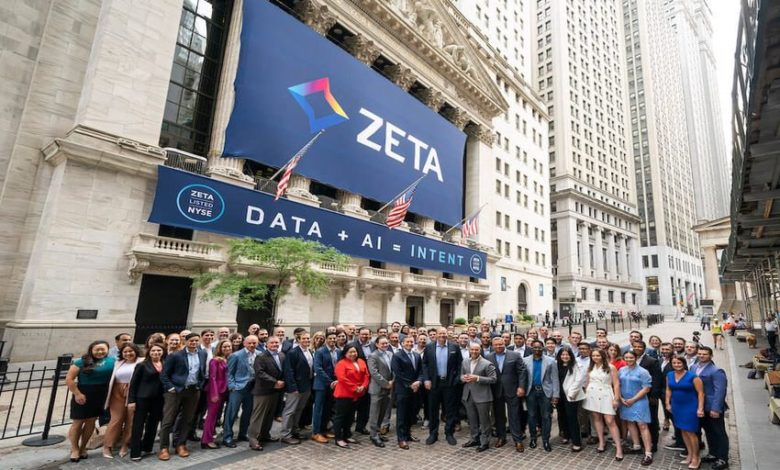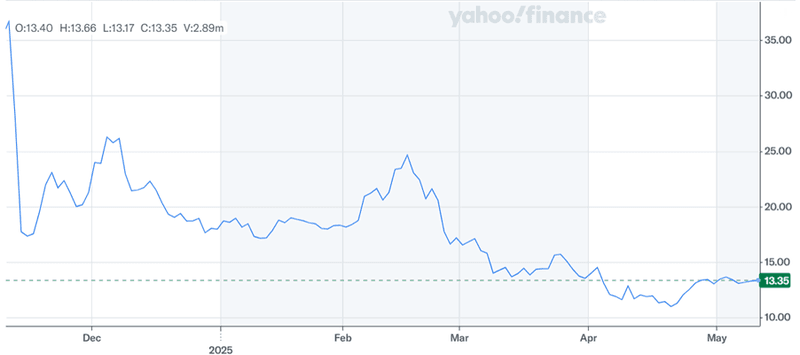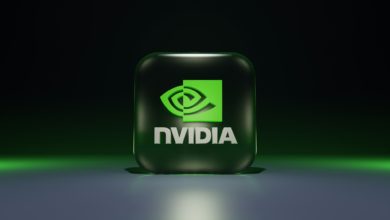
Zeta Global (NYSE:ZETA) has landed squarely on Wall Street’s radar after reporting a stellar Q1 2025 that blew past analyst expectations and sent its stock soaring. The marketing automation software firm not only posted 36% revenue growth and a 53% jump in adjusted EBITDA year-over-year, but it also revealed a growing number of inbound acquisition inquiries from potential suitors. CEO David Steinberg dropped a tantalizing hint during the company’s earnings call, saying he has spent “a disproportionate percentage” of his time fielding calls from parties interested in buying Zeta. While he quickly backtracked, noting “I probably shouldn't have said it,” the cat was already out of the bag. This revelation, combined with strong financial metrics and deepening customer relationships, is sparking intense speculation about Zeta’s future—whether it will continue as a standalone disruptor or become a strategic acquisition for a tech giant or agency network seeking AI-driven marketing dominance.
Consistent Performance Through Volatile Macros
Zeta Global has shown remarkable resilience across varied economic conditions, which makes it an appealing target for acquisition. The company has delivered 15 consecutive quarters of "beat and raise" performance—a feat few in the marketing technology sector can claim. Amid the macroeconomic turmoil of 2020 and 2022, Zeta still managed to grow its revenues by 20% and 29%, respectively, illustrating its dependable growth engine. Its Q1 2025 performance was no different, with revenue hitting $264 million—up 36% year-over-year—and adjusted EBITDA reaching $47 million, up 53%. Importantly, this wasn’t a fluke: Zeta raised full-year 2025 guidance with a cautious but confident outlook, underpinned by strong pipeline visibility and execution. A key driver of its stability is Zeta’s lower-funnel marketing focus—spending that’s tied directly to measurable conversion metrics. In times of budget cuts or economic uncertainty, such performance-based marketing tends to be more resilient than branding spend. Furthermore, Zeta maintains a long-term relationship with its customer base, with over 90% of revenue coming from clients who’ve been with the firm for more than a year. These dynamics provide recurring revenue visibility and reduce customer churn risk—traits that are highly prized by potential acquirers looking for dependable cash flow.
Scalable AI Platform With Proven ROI
Zeta’s AI-powered marketing platform, especially its new AI Agent Studio and agentic workflows, presents a high-margin, scalable product that differentiates it in a crowded martech space. The platform's core strength lies in its ability to deliver actionable, real-time personalization across owned and paid media, and this is proving transformational for customers. For instance, a telecommunications client saw a 53% improvement over its benchmark customer acquisition cost, leading to a two-year deal that more than doubled its annual Zeta spend. Similarly, a major insurer achieved a 37% reduction in acquisition cost, driving a 50% increase in spend. What makes Zeta's AI particularly valuable is its "agentic workflow" system, which allows multiple AI agents to collaborate seamlessly on complex marketing tasks, delivering higher productivity and return on investment. These features aren't just flashy buzzwords—they’re validated through third-party attribution and direct client feedback. The AI capabilities are also driving deeper integrations with independent and holding company agencies, proving to be a compelling draw in a fragmented and evolving ad tech landscape. As demand for AI-native platforms explodes, Zeta’s fully integrated, scalable, and enterprise-grade AI stack becomes a strategic asset that could prove too valuable for larger tech players or agency networks to ignore.
Expanding Enterprise & Agency Penetration
Zeta is making strong inroads with both enterprise clients and advertising agencies—two large and lucrative customer pools. The company added 21 scaled customers sequentially, bringing the total to 548, a 19% year-over-year increase. Super-scaled customers (those spending at least $1.4 million per quarter) rose by 11 to 159, up 10% YoY. The company has also been platforming independent agencies at a rapid pace, signing two new ones in Q1 and finalizing two more, tapping into a pool of over 1,000 prospects. Zeta’s agency channel mix is also shifting from integrated (lower margin) to direct (higher margin), signaling deeper platform adoption and improved profitability. Agency partners often use Zeta’s capabilities to win new clients, enhancing mutual value creation and long-term contract visibility. Notably, three of the eight largest holding companies are now scaling rapidly with Zeta, and the largest among them just signed a multi-year agreement. This agency traction brings volume, retention, and distribution advantages that many competitors lack. Given Zeta's success in embedding its platform deeply into both independent and holding company ecosystems, any acquirer with an interest in dominating the agency space or bolstering their enterprise martech portfolio would find this footprint compelling.
Disciplined Capital Allocation & Cash Flow Focus
Another major point of attractiveness is Zeta’s improving cash flow metrics and shareholder-friendly capital allocation strategy. In Q1 2025, Zeta generated $28.2 million in free cash flow, an 87% year-over-year increase and a free cash flow conversion rate of 60%—well ahead of the prior year’s 50%. This focus on operational efficiency is paying off: cost of revenue improved by 90 basis points sequentially, and GAAP net loss narrowed from $40 million in Q1 2024 to $22 million this quarter. Moreover, Zeta is actively managing dilution and stock-based compensation. The executive team—including the CEO, COO, and CFO—opted out of 2025 equity grants to reduce shareholder dilution. The company repurchased 3.4 million shares between January and April 2025 for $46 million, signaling confidence in its intrinsic value and alignment with investor interests. Such measures are increasingly rare in high-growth tech companies and may appeal to private equity firms or strategic acquirers seeking a business that balances growth with financial discipline. Additionally, Zeta has set long-term targets through 2028 that include $2 billion in revenue, 25% adjusted EBITDA margins, and 16%+ free cash flow margins. While these are forward-looking statements, the company’s trajectory and recent execution provide a framework that any buyer could use to underwrite a compelling investment thesis.
Final Thoughts

Source: Yahoo Finance
Despite Zeta Global’s strong Q1 performance, increasing AI adoption, and enterprise traction, there is no notable spike in the stock price. The company is currently trading at an LTM EV/ Revenue multiple of 2.78x which may seem relatively low for Zeta’s line of business and could explain the reason for the acquisition offers. The CEO’s candid acknowledgment of inbound M&A inquiries, though quickly walked back, has added fuel to market speculation. We believe that while the company continues to operate independently and execute on its long-term strategy, its growing relevance in performance marketing, particularly during uncertain macro conditions, makes it a potentially valuable target. However, it continues to be loss-making at the net income level and might take a few more quarters to achieve a positive operating income. Zeta Global also faces risks associated with broader market trends and evolving competition. The company has solid business fundamentals but we believe that placing a bet on the currently unconfirmed nature of takeover discussions might be speculative from an investor standpoint.




